Please note these plant profiles are a work in progress. I will always be adding to them as I keep learning about the amazing world of plant medicine.
Botanical Overview
Latin name: Verbena officinalis
Plant family: Verbenaceae
Identification: Vervain’s leaves are elongated and deeply cut at the top with round, toothed edges. The numerous long stems that grow out of the clump are rectangular and branching at the top. Some stalkless leaves grow at the base of the stem. Tiny lilac or pinky-white flowers grow directly from the stem, opening gradually up the stem as it grows (1).
Other species: Vervain can sometimes be mistaken for some mints but are unscented.
Folk names in English: Enchanter’s plant, herb of enchantment, ironherb, herb of grace, herb of the cross, holy herb, holy wort, Indian hyssop, Juno’s tears, pigeon grass, simpler’s joy, verbena, herb of Venus, ferfain, herba veneris, van van, Tears of Isis (2). Verbena in Latin has been said to mean ‘altar plant’, referring to its sacred properties. Officinalis means used in medicine.
Chemical constituents: Bitter iridoids (verbenin, verbenalin that are glycosides; the latter breaks down easily), Volatile oil containing citral, terpenes and alcohols, Alkaloids, Mucilage, Tannins, Verbenalol (a bitter compound) (3).
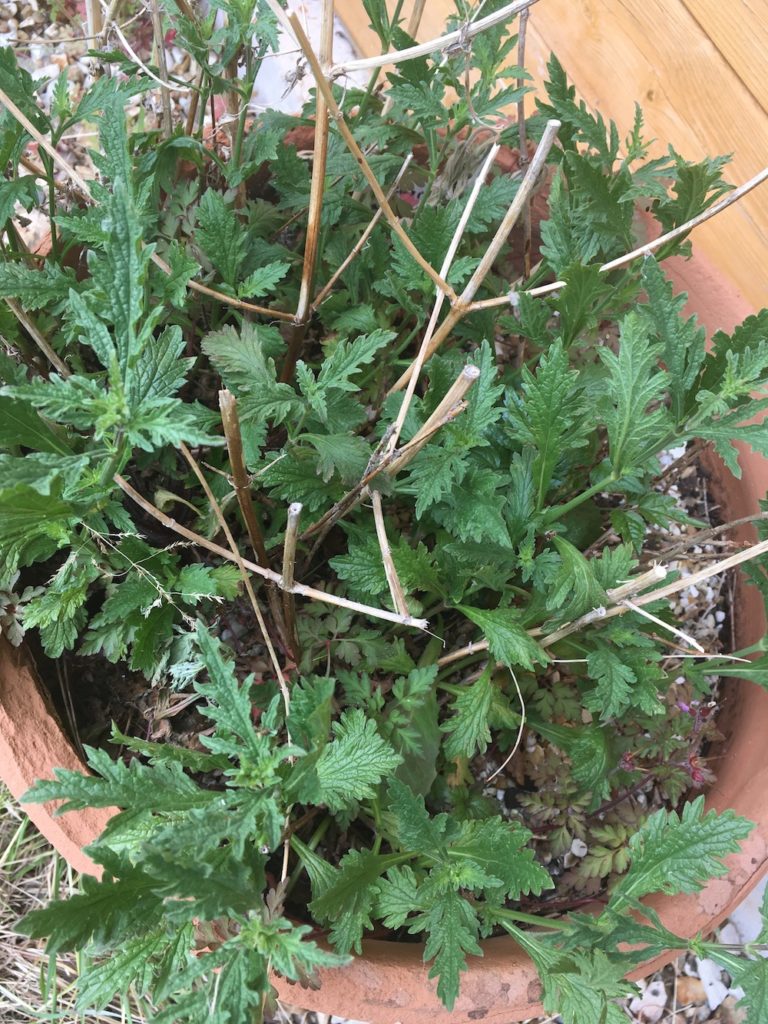
Food and nutrition
I am not aware of Vervain being used nutritionally, however, it is a common tea plant in Europe.
Ecological role
Vervain grows on rough and waste ground. It is generally found on freely-draining, often calcareous soils. It is most frequent in rough grassland, roadsides and scrub but can also be found on coastal cliffs, rocky outcrops and woodland borders (4).
Cultivation: Vervain is propagated by seed. It is best transplanted after frosts have passed. It prefers full sun.
Energetics
- Temperature: Cooling
- Moisture: Drying
- Tissue State: Wind/Tension, Heat/Excitation
- Taste: Bitter
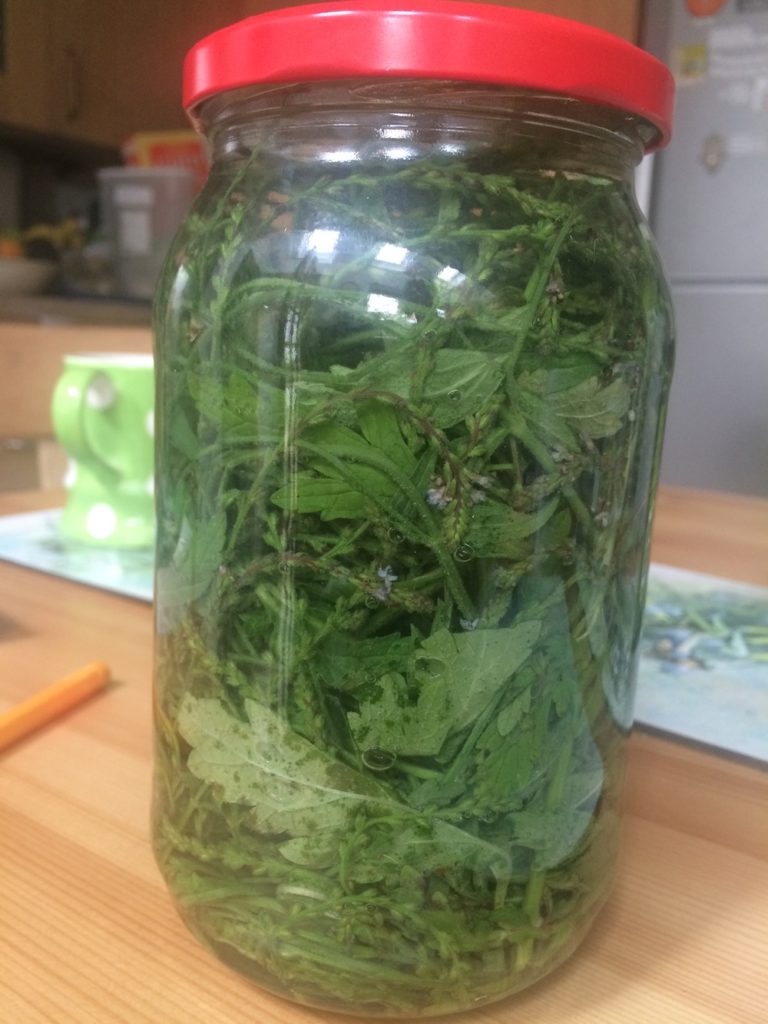
Health challenges supported by Vervain
Herbal actions: Nervine, tonic, sedative, choleretic, bitter, uterine stimulant, parasympathetic tonic, purgative at high doses, mild anti-depressant, mild diaphoretic, galactogogue, emmenagogue, hepatic (3). Alterative, thymoleptic, anxiolytic, antioxidant, anti-spasmodic, anticoagulant, analgesic, antimicrobial, antineoplastic, cholagogue, febrigue, relaxant, parturient (5).
Supporting the nervous system: Vervain is such a beautiful and powerful tonic for the nervous system that has been used for thousands of years and was one of the nine sacred herbs for the Druids. It is especially supportive for people trying to recover from nervous exhaustion, as well as chronic illness and fatigue (which are exhausting in and of themselves). Vervain is great for anyone struggling with excess tension and chronic stress. Vervain can support many of the symptoms we develop when enduring stress such as headaches, migraines, insomnia, high blood pressure and general aches and pains. Vervain can aid sleep issues such as nightmares.
Premenstrual tension: Vervain’s affinity for the liver and for relaxing tension make it a great remedy for people experiencing premenstrual tension and irritability. It can also play a cooling, calming role for people experiencing ‘hot’ menopausal symptoms.
Childbirth and recovery: Anne McIntyre writes that vervain is said to enhance contractions during childbirth and enhances milk supply for people who are nursing. She writes that vervain is also helpful for insufficient lactation especially associated with stress (5).
Digestive support: Vervain’s bitter action stimulates the liver which can help relieve headaches, lethargy, irritability and constipation (5). Vervain root is also astringent and can be used in cases of diarrhoea and dysentery.
Immune system support: Vervain can also have a diaphoretic action making it useful in reducing fevers. With its antimicrobial, immune-enhancing and nervine properties, vervain can also be used for shingles and added to mixes for chronic fatigue and fibromyalgia (5). The Welsh Myddfai physicians recommended Vervain for the treatment of swollen glands and Hildegard recommended Vervain for ulcers and swelling, including swollen and sore throats (2).
Brain tonic: Vervain can also help improve memory and concentration (5).
Urinary Tract Infections: Vervain is useful in the treatment of UTIs because of its cooling, diuretic and antimicrobial actions.
Dental issues: Vervain’s astringent action makes it a useful ingredient in herbal mouthwashes for bleeding gums and mouth ulcers.
Topical complaints: Vervain can be added to lotions for eczema, sores and neuralgia (5).
Cautions
Avoid during pregnancy. Be cautious if using prescribed antidepressants or anticoagulants. Vervain can also take away from mineral supplements (5).
Vervain and the Solidarity Apothecary
I don’t tend to distribute vervain freely because of it not being appropriate for people who are pregnant. However, when used safely, vervain is an incredible herb for burnt out organisers and others who have endured chronic stress and oppression for far too long. It is especially useful for people who experience distress when they are pre-menstrual, as part of how their body processes stress. I generally make tincture or glycerites with vervain and more often combined with other nervines such as St John’s Wort and Wood Betony.
Sources
1. Wild Drugs, Zoë Hawes
2. http://www.wortsandcunning.com/blog/tag/vervain
3. Vervain monograph, The Plant Medicine School
4. https://wildseed.co.uk/species/view/250
5. The Complete Herbal Tutor, Anne McIntyre

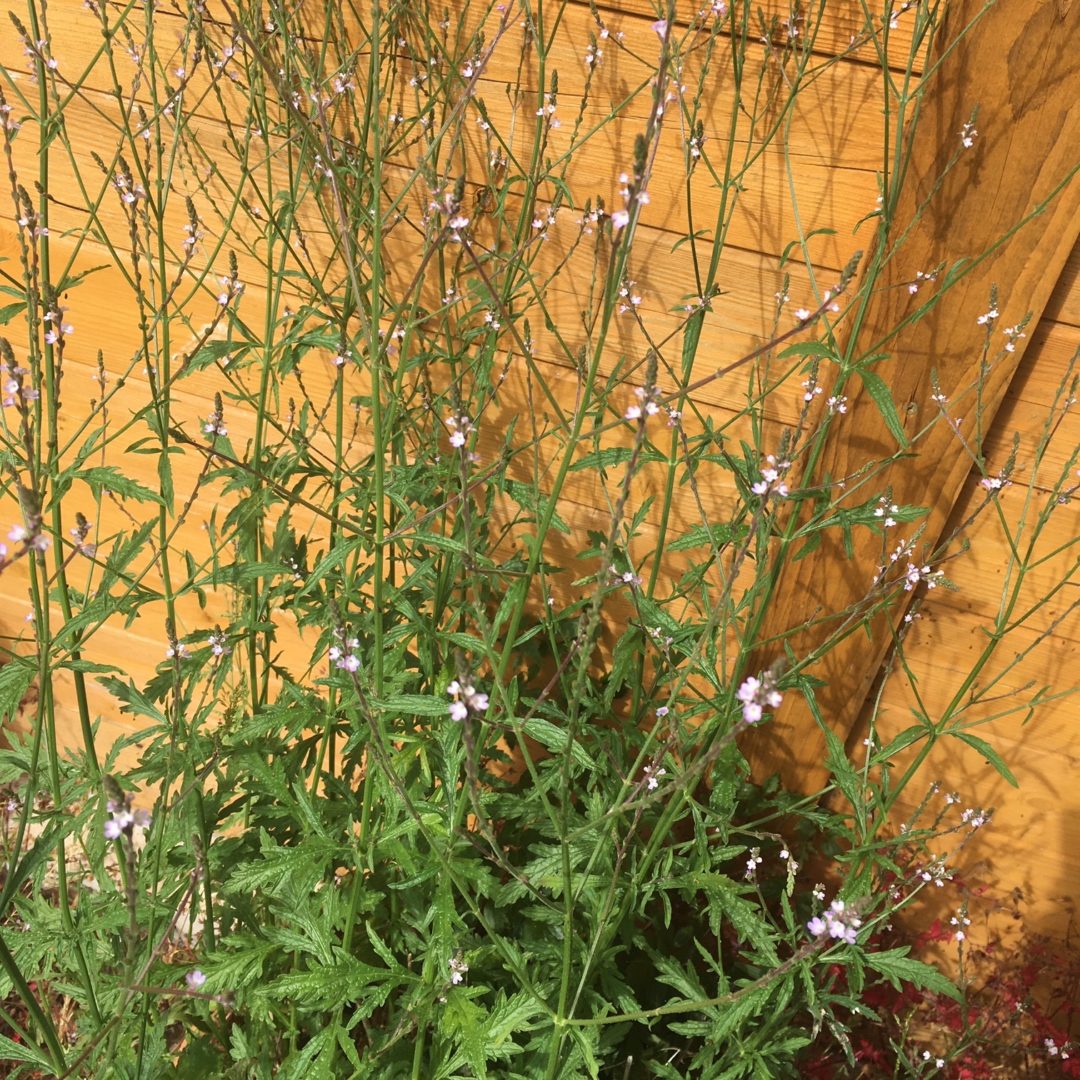

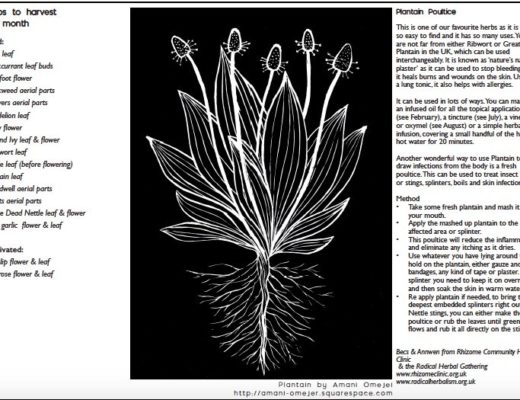
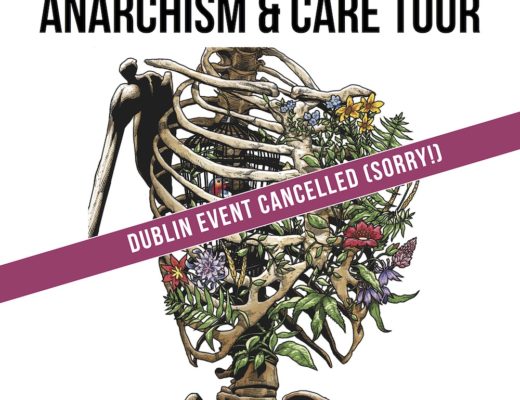
No Comments